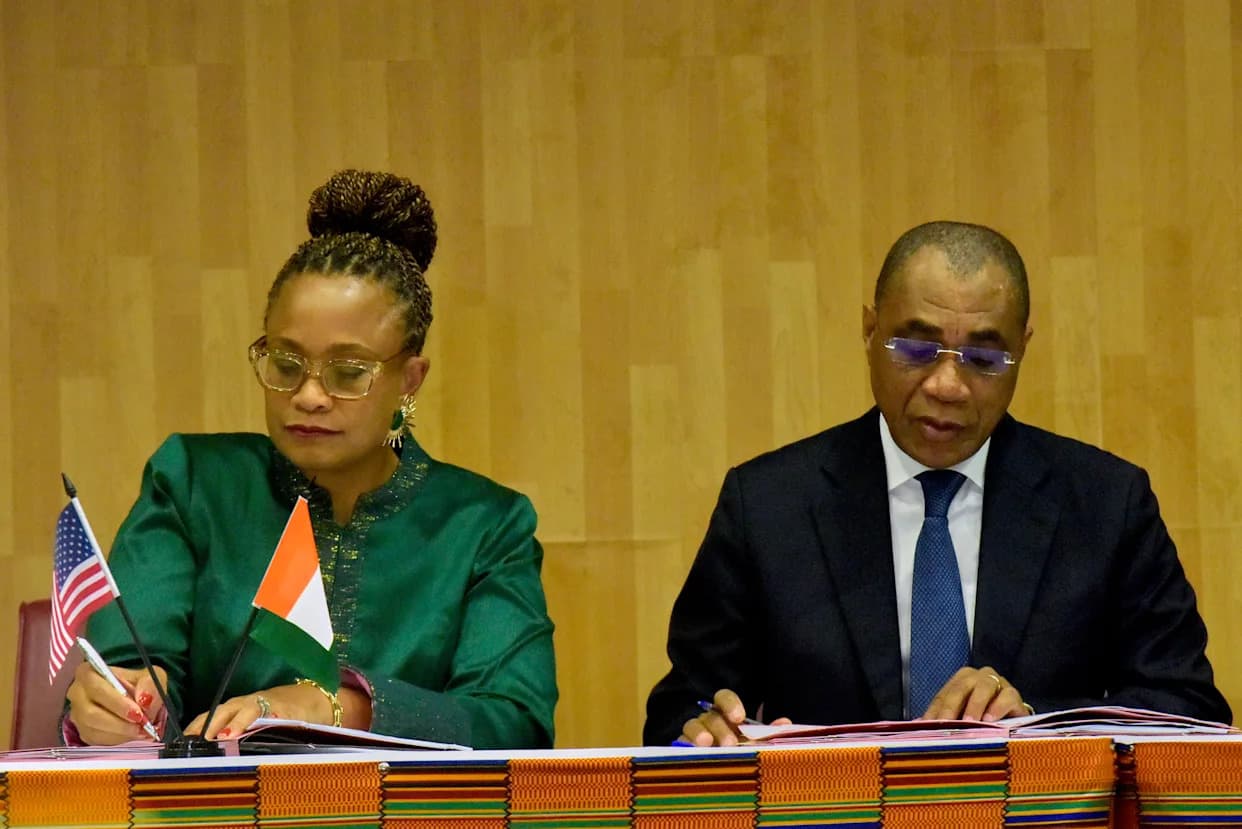MacArthur Foundation awarded $100 million to Sentinel, an African-led surveillance network that builds low-cost pathogen tests, deploys real-time outbreak tracking and trains local scientists. Sentinel has trained more than 3,000 public health workers across 53 of Africa's 54 countries, and the five-year grant will expand its reach and early-warning systems. The award arrives as global health funding and multilateral cooperation face cuts, prompting calls to empower community-level responders. Supporters say locally led surveillance is critical to detecting and stopping future pandemics early.
MacArthur Foundation Awards $100M to African-Led Sentinel to Strengthen Outbreak Surveillance Amid Global Health Cuts

MacArthur awards $100 million to Sentinel to expand African-led outbreak surveillance
The MacArthur Foundation is committing $100 million to Sentinel, a private, African-led outbreak-prevention network that develops low-cost pathogen tests, uses real-time tracking tools and trains local scientists to lead community-based responses. The grant — the winner of MacArthur's 100&Change competition — comes as many governments are cutting global health funding and stepping back from multilateral cooperation.
Sentinel reports it has trained more than 3,000 public health workers from 53 of Africa’s 54 countries. The five-year grant will help the network broaden its geographic reach, strengthen diagnostic capacity and accelerate local early-warning systems so communities — and the world — are notified more quickly about previously undetected diseases.
Local leadership and global implications
Christian Happi, co-director of Sentinel and head of the Institute of Genomics and Global Health at Redeemer's University in Nigeria, said the investment demonstrates that "solutions to global health challenges can be led from Africa." He described Sentinel as "about trust, collaboration, and building the systems that allow every country to respond swiftly and confidently to disease threats."
"This investment affirms that solutions to global health challenges can be led from Africa." — Christian Happi
MacArthur officials hope the award will encourage other funders to support similar international, locally led initiatives. Chris Cardona, MacArthur's managing director for Exploration, Discovery and Programs, said the grant provides "further wind in those sails" while acknowledging that the scale of global health challenges and remaining funding gaps mean much more work is needed.
Funding gaps and shifting policy
The award comes at a time of shrinking budgets and reduced cooperation in global health. The article notes several U.S. policy shifts that have raised concerns among public health experts: reduced U.S. support for Gavi (the vaccine alliance), directives that limited some U.S. Centers for Disease Control and Prevention collaboration with the World Health Organization, and proposals to cancel hundreds of millions of dollars in programs for infectious disease, maternal and child health, and HIV.
Experts warn that such retrenchment could reduce global visibility into emerging outbreaks. "This work in Africa would be important because, as the U.S. and European nations pull out from support globally, we will have less visibility of what’s going on overseas," said Dr. Ali S. Khan, dean of the University of Nebraska Medical Center College of Public Health.
Origins and approach
Sentinel began as a collaboration between Happi’s lab and Dr. Pardis Sabeti’s lab at the Broad Institute in Cambridge, Massachusetts, focused on Lassa fever. Sabeti said that traveling into affected villages and deeply embedding in communities produced insights that would not have been possible from afar. Sentinel aims to give communities the diagnostics, training and professional networks needed to detect, control and quickly report new threats.
Sabeti described the MacArthur award as "transformative," noting that public health programs in many places are being strained. "By giving people in communities the information that they need, they end up becoming sentinels for an emerging outbreak," she said. "It’s really allowing every person on the planet to participate in stopping the next pandemic."
Former USAID deputy assistant administrator for global health Nidhi Bouri emphasized the importance of diversified funding, warning that pandemic surveillance requires continuous monitoring and cannot be done intermittently. "There is a collective responsibility — and a collective interest globally — for a range of stakeholders to assess how they can support different investments with the shared goal of mitigating the spread of diseases across the globe," she said.
Associated Press coverage of philanthropy and nonprofits receives support through the AP’s collaboration with The Conversation US, with funding from Lilly Endowment Inc. The AP is solely responsible for this content.
Help us improve.


































